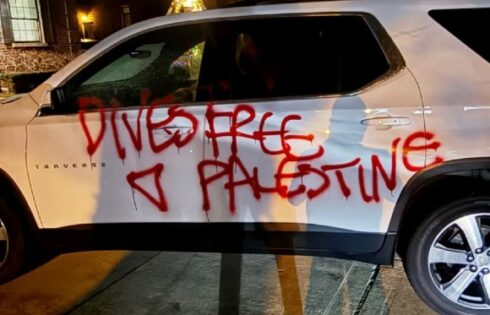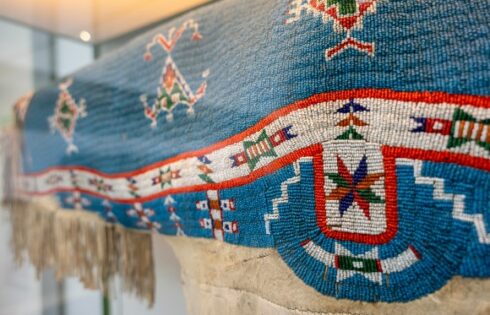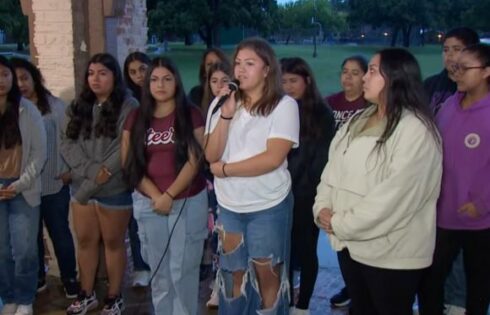
Editor’s Note: This is the fourth in a series of articles reporting on the American Studies Association’s annual meeting, an academic conference held Nov. 9-12 in Chicago.
CHICAGO – Professors should take seriously white, conservative male students’ concerns about being silenced in college classrooms partly because their feelings of exclusion could lead to the “radical militarization of white men,” a scholar suggested at a recent academic conference.
It’s similar feelings of persecution that have led to mass shootings, Florida Atlantic University professor RJ Boutelle said, implying the issue shouldn’t be ignored by his peers.
The English professor’s comments came amid advice that scholars should resist any impulses to disregard conservative students and their concerns. Noting that many conservatives on college campuses feel they can’t discuss their views without being shut down by a liberal majority, Boutelle, who is white, said hearing out the students’ complaints is an important task for professors.
He said “the kind of persecution white students, particularly men, feel in these moments is precisely the kind of persecution syndrome” that can direct them to online forums involving men’s rights activists and white nationalists and “can even lead to the radical militarization of white men that we’ve seen time and time again, all too recently materialize in mass shootings.”
Conceding those are “extreme possibilities,” Boutelle claimed there is a “pipeline” of those students feeling silenced on campus and right-wing media outlets affirming those concerns.
He made his remarks at the American Studies Association’s annual meeting, held recently in Chicago, during a session titled “The Problem of Whiteness.” University of Wisconsin-Madison professor Damon Sajnani, who faced criticism for teaching a course with the same name, chaired the panel discussion.
Sajnani, who is a rapper as well, said he intends to teach the course again next semester and even plans to release a song called “The Problem of Whiteness” that he performed at the panel discussion.
“But you know what your number one problem of whiteness is, you don’t even know what the fuck whiteness is,” the lyrics of the song include.
Boutelle’s presentation highlighted the challenge of teaching critical whiteness studies, especially in the current political and historical context. The topic has always posed its challenges with teaching students who are new to its concepts and making sure instructors meet the needs of students from various backgrounds, according to the professor.
Boutelle said courses on whiteness must straddle a delicate balance that lets white students “come to grips with their racist inheritance” and allows students of color to talk about “alternatives to a white supremacist society.”
That task has only become harder in today’s political climate, Boutelle said, where liberals are quick to dismiss conservatives as bigots and conservatives see liberals as social justice warriors preoccupied with political correctness.
“As a result, nuanced evidence-based reasoning and even dialogue itself feel more idealistic than practical,” he said.
Another difficulty laid out for critical whiteness professors is the criticism the topic has faced from conservative commentators, who Boutelle said have branded such courses as “a salon for liberal brainwashing.”
What comes along with that accusation is the challenge is persuading white students who see such courses as “simply liberal grandstanding.” For Boutelle, the answer to that issue is not to cast aside conservative, white students.
He said his colleagues should embark on trying to reach those students and understand where they’re coming from and what their concerns might be. He said he believes whiteness courses can let students examine their relationship to whiteness without necessarily calling out political ideology. He added critiques of whiteness can hit both sides of the political spectrum.
“By taking seriously the emotional responses of white students and conservative students while at the same time correcting microaggressive language and misconceptions based in stereotypes or political ideology, teachers of critical whiteness studies can reach a broader audience and help prepare students to incorporate anti-racist activist work in their daily lives,” the professor said.
MORE: White, male students called on last in some classrooms
MORE: Inventor of ‘white fragility’ says whites must stop becoming teachers
IMAGE: Shutterstock
Like The College Fix on Facebook / Follow us on Twitter






Please join the conversation about our stories on Facebook, Twitter, Instagram, Reddit, MeWe, Rumble, Gab, Minds and Gettr.